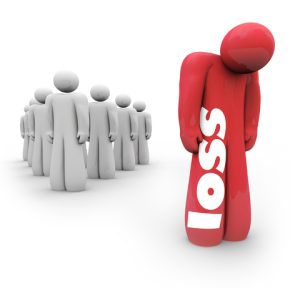“The Value of a Peer”
June 25, 2012
When I was diagnosed, one of the first things I did was talk to a peer. Peers are priceless; they help immensely. There is an instant connection and understanding, bringing both comfort and knowledge.
I could have never survived my MS if I didn’t reach out to peers, and I love it when they reach out to me. Even as an old veteran of MS, I still find myself reaching out to peers for help and guidance.
Recently, I reached out to a MS peer for a different purpose. I contacted Sharon Baldacci, author of A SUNDOG MOMENT. Sharon has lived with MS for thirty-one years like me, and I reached out to her to review my new book, MANAGING MS: STRAIGHT-TALK FROM A 31-YEAR SURVIVOR.
She responded to my email the very next day and agreed to read it and do a review. I was shocked at first at the quick and agreeable response but I shouldn’t have been. There is a camaraderie that exists between MSers.
Over the next few weeks, we emailed little comments back and forth. Sharon just sent me her review, mentioning that after all these years she learned something new about an MS symptom she deals with from my book. I, in turn, learned a few things from her; and I found another MS friend I can share with going forward.
Here is Sharon’s review of my book:
June 21, 2012
When I was asked to review Debbie Petrina’s new book, MANAGING MS: STRAIGHT TALK FROM A THIRTY-ONE-ONE YEAR SURVIVOR, I had to chuckle. I too have lived with this illness just as long and didn’t think it was possible to learn anything new.
Boy, was I wrong. This small, easy to read book is a wealth of matter-of- fact information interspersed with her memories that add credibility. I learned more about spasticity here than I knew and also the word `clonus’ that describes exactly what my weaker leg does sometimes. She adds practical tips for dealing with so many of the symptoms, and side effects of medications. The chapters are broken down into advice for the newly diagnosed, symptoms, grieving, heat, and what you can do about the variety of problems that come with MS. There are chapters about dealing with people (and how they deal with us) as well as what she calls the elephant in the closet – suicide.
She also makes it clear that it is the person with MS that is in charge of all decision-making, not the doctors. The doctors are there to give all the information needed for decision-making. She explains clearly why and how she made difficult decisions for her and her family and how it has worked out all for the best. She strongly encourages everyone to do the same. This is an empowering book that doesn’t sugar coat anything but makes the endless details manageable – from her 31-one years of experience. I felt like I was learning from an old friend over a cup of tea.
This should be required reading for doctors, health professionals, MS patients and their families.
Sharon Baldacci, author of A SUNDOG MOMENT
It’s incredible that the internet exists now to offer forums for peers of any situation to connect with each other.
Free.
Everyday when I give thanks in my prayers, I never forget my gratitude to all the MS peers I have interacted with over the years.

